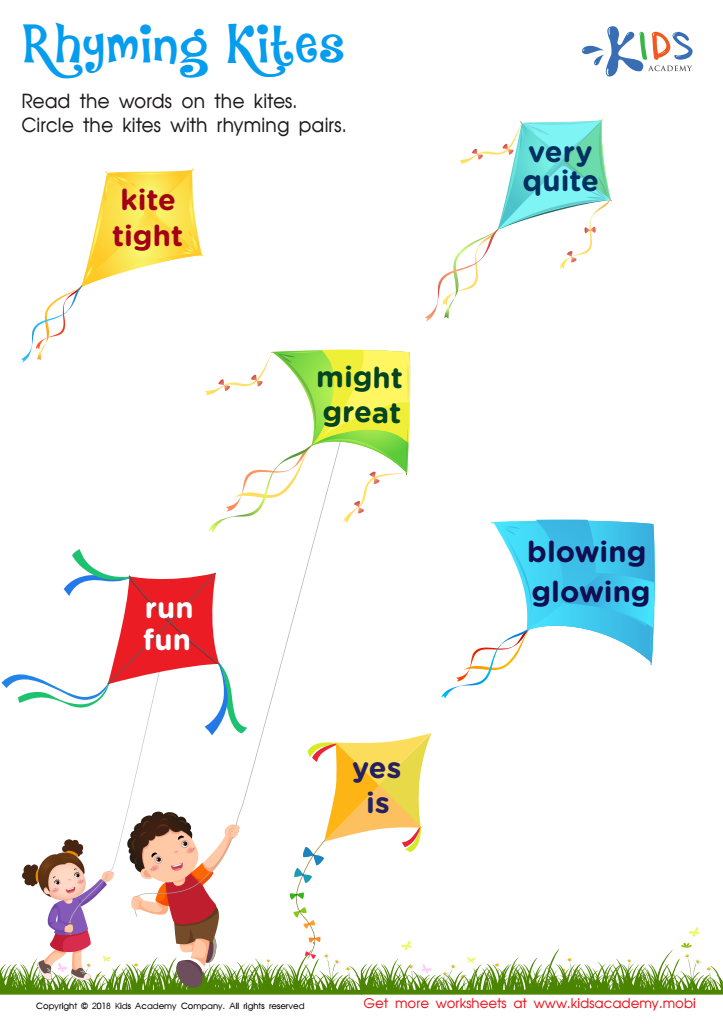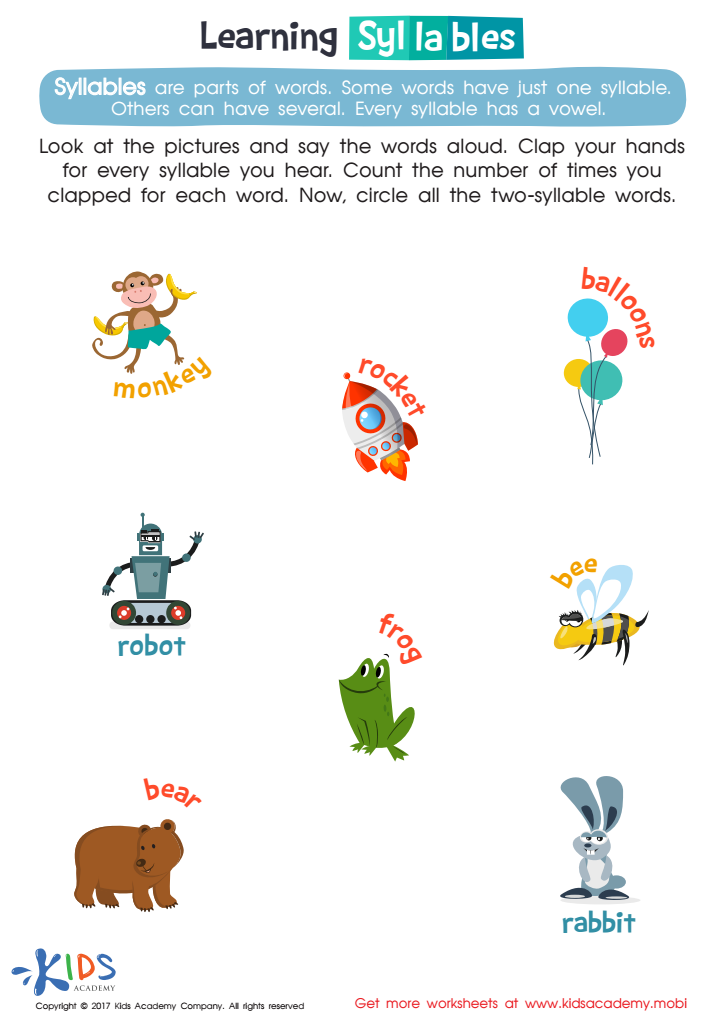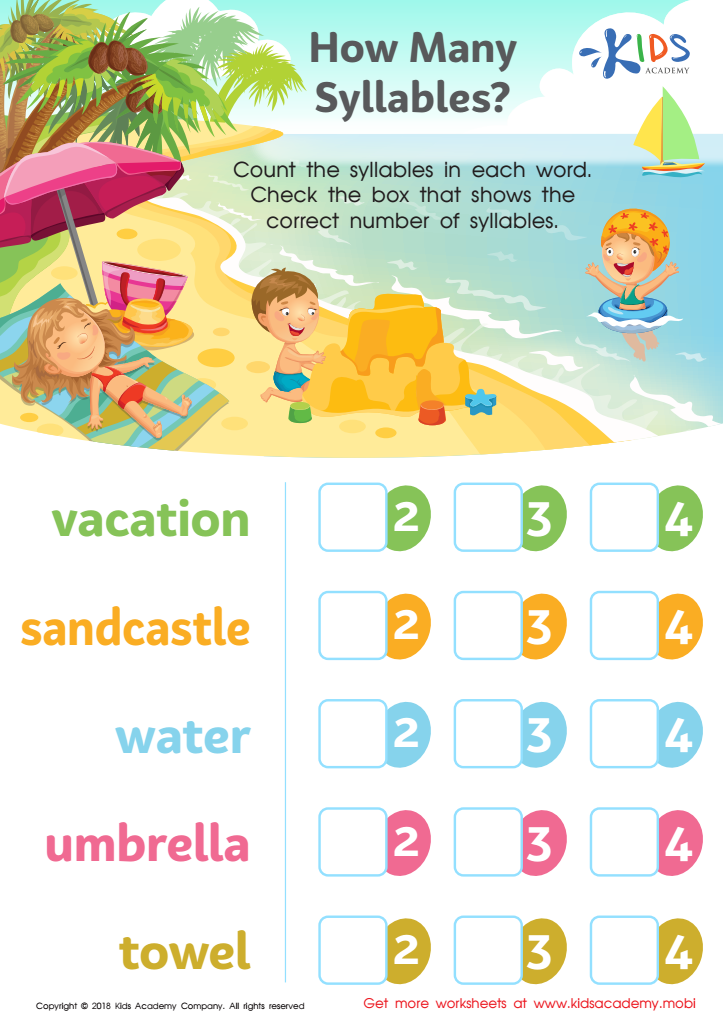Phonetic awareness Normal Worksheets for Ages 7-8
3 filtered results
-
From - To
Enhance your child's phonetic awareness with our engaging worksheets designed specifically for ages 7-8! These thoughtfully crafted resources help young learners master the sounds of language through exciting activities that promote decoding, blending, and segmenting skills. Ideal for reinforcing classroom learning, our worksheets feature a variety of exercises, including word matching, sound sorting, and interactive phoneme identification games. By using these normal worksheets, you can support your child’s literacy journey, boosting their confidence and reading fluency. Explore our collection today and watch your child thrive as they discover the joys of reading and phonetic knowledge!


Rhyming Kites Worksheet


Learning Syllables Word Structure Worksheet


How Many Syllables Worksheet
Phonetic awareness is a critical skill in early literacy development, particularly for children aged 7-8, as they transition into more complex reading and writing tasks. Parents and teachers should care about phonetic awareness because it lays the foundation for effective reading comprehension and spelling abilities. At this age, children begin to encounter a broader vocabulary and more sophisticated texts, making phonetic awareness essential for decoding unfamiliar words and improving fluency.
Moreover, phonetic skills enhance critical thinking by enabling children to manipulate sounds, recognize patterns, and build words. This skill not only supports literacy but also develops a sense of confidence in communicating effectively. Engaging in phonetic activities can create a fun and interactive learning environment, motivating children to read more and solidifying their learning through practice.
Additionally, fostering phonetic awareness can help identify and support children who may struggle with reading, allowing for timely interventions that can lead to improved academic outcomes. Overall, prioritizing phonetic awareness for children aged 7-8 equips them with crucial tools for lifelong literacy success and contributes to their overall cognitive development, making it a vital focus for both parents and educators.

 Assign to My Students
Assign to My Students







.jpg)











